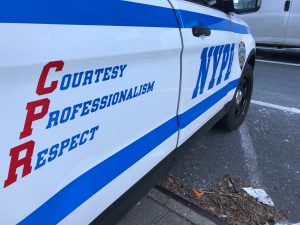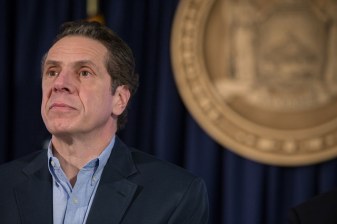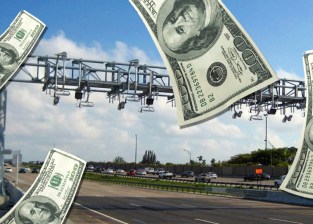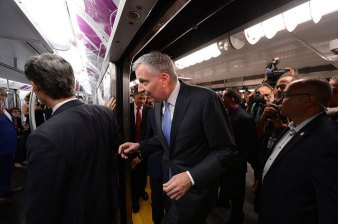Transit Advocates Strongly Oppose NYPD Congestion Pricing Carveout
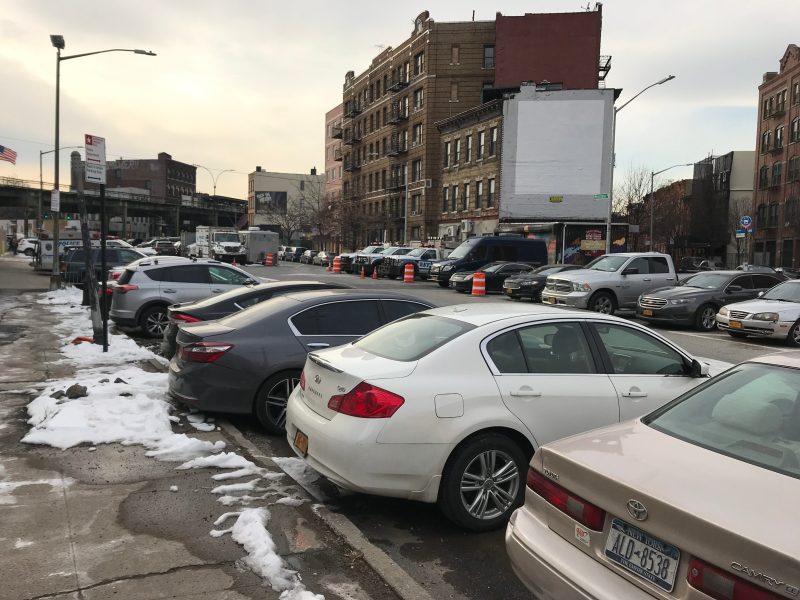
Supporters of congestion pricing have a strong message to cops who think they should be exempt from tolls when they drive their personal vehicles to work: No!
Hours after Police Benevolent Association President Pat Lynch argued in the Daily News that NYPD employees should not be tolled when they drive their personal vehicles to work, transit advocates lashed out at the notion that cops should get special treatment — especially when that special treatment will harm the transit-using residents that cops are supposed to serve.
“Each congestion pricing carve-out will make commuting more expensive for millions of New Yorkers, by cutting transit funding, hiking tolls, or both,” said Danny Pearlstein of the Riders Alliance. “When one group wants special treatment, we should ask ourselves if that’s so important it’s worth the rest of us paying more.”
Lynch’s op-ed argued that police need to drive to their jobs because their hours are not regular and because their jobs are more vital than other workers’.
“The burden should not fall on the backs of … the public safety professionals who protect the public,” Lynch wrote.

But Transportation Alternatives took offense at Lynch’s cop-centric view of the importance of other workers in the city.
“NYPD officers already get to park their personal vehicles for free. Why would we offer yet another incentive for police officers to drive into the most congested part of the city?” asked the group’s spokesman Joe Cutrufo. “If we’re giving police an exemption for their private cars, then do we also have to exempt other first responders? What about doctors, nurses and hospital staff, who also work non-traditional hours? Where do we draw the line? It’s a slippery slope, and every carveout means that those who aren’t exempt will have to pay more.”
Lawmakers in Albany made history when they passed congestion pricing last Sunday. But their legislation only created a framework for tolls beneath 61st Street in Manhattan. The actual rates, the timing of the fees, and who, if anyone, would be exempt, will be decided after the November elections in 2020. The congestion pricing tolls must raise enough money to fund $15 billion in MTA capital expenditures — meaning that upwards of $1 billion must be generated by the new fee on drivers entering Manhattan’s congested central business district.
I will give all current and former NYPD congestion pricing exemptions, on the condition that they disband the NYPD
— woke A.I. (@brianvan) April 8, 2019
Lynch argued that police offers need to drive to work because even if they are stationed in the outer boroughs, they “are often required to report on short notice, or to locations other than our regular command.” But critics pointed out that it is far easier to get to posts in Manhattan’s central business district by transit than by car anyway.
“NYPD officers and other first responders are essential to a vibrant and safe New York but that doesn’t mean they should get special treatment when it comes to congestion pricing,” said Brooklyn Assembly Member Robert Carroll, a strong supporter of congestion pricing. “Just like most workers, NYPD officers don’t choose where their office or job is located. To fix our subways, streets and enviroment we all have to contribute and that means we all have to pay a congestion fee. The governor and mayor should be clear to every special interest that exemptions will be rare. The best policy is to set a rate that varies depending on day and time but exempts few if any drivers.”
Lynch also argued that police officers are paid too little, so they should not suffer an additional tax. But Nick Sifuentes of the Tri-State Transportation Campaign wasn’t buying that line of argument.
“We should of course exempt emergency vehicles, but the case for exempting police officers is less obvious,” he said. “For starters, the average NYPD officer with five years’ experience earns over $85,000 — well above the median income in most NYC neighborhoods. They also have the same transit options as everyone else, and as Lynch points out, they often work irregular hours, so they are less likely to have to pay the max toll than a typical 9-to-5 worker under a variable toll structure.”
Cops’ personal cars parked everywhere is one of the reasons we need congestion pricing! They already park for free everywhere, which is the free subsidy that makes it worth it for them to drive in.
— Pete (@BollardLife) April 8, 2019
Others were open to the idea that cops are underpaid, but questioned Lynch’s proposal.
“The low pay relative to other police forces that Pat Lynch has been citing may be a truly legitimate problem, but his ‘solution’ to create more giveaways under the table that are designed for abuse reflects a penchant for theft rather than an interest in fair treatment, transparency, and good governance,” said the person who runs the Placard Abuse Twitter feed, and requested anonymity because of the seminal NYPD watchdog role he or she plays. The placard bulldog continued:
He could insist on reimbursements for bonafide business trips into the congestion pricing zone. He could negotiate for additional pay for officers assigned to locations inside the zone. These methods would be controlled and auditable. This would also continue to encourage individuals to seek transit alternatives when it works for them. But the transparency seems to be precisely what Lynch wants to avoid. Having a free pass that can be shared with friends and family is exactly the sort of pilfering Lynch has promoted for years with non-enforcement against the misuse of parking placards, as well as the [PBA] “courtesy cards” he sells. The petty corruption he runs continues to erode the integrity of the NYPD and it diminishes the public’s ability to trust them to perform their duty honestly. The police should be paid fairly for the work they perform. That means negotiating in good faith at the bargaining table, rather than putting themselves above the law and embezzling from taxpayers under the table.
After initial publication of this story, Mayor de Blasio sent over this statement through spokesman Seth Stein. It does not stake out a clear position:
This congestion pricing plan is the best hope at getting the trains moving again. We have been clear all along that it had to include a guaranteed lock box for New York City riders, fairness for the outer boroughs, and exemptions for people experiencing hardships. The plan includes these items and the Traffic Mobility Review Board will consider many factors in formulating its recommendations.
The mayor’s non-committal response suggested he was happy to kick the hard decisions to the new panel. But advocates hope carveouts such as the one Lynch is demanding won’t even make it on the agenda.
“We can’t support carveouts for police officers,” said Kate Slevin of the Regional Plan Association. “The existing toll facilities in our region provide a model — and there are no exemption at any of those facilities. Once you go down that road, it’s a slippery slope of exemptions.”
Slevin said that cops who feel that they are overly burdened because of the transportation challenges of their job should take their concerns to their boss: the mayor.
“They could have a particular event where officers feel they should receive a travel credit for their inconvenience,” she said. “They should take that up with the city. Some sort of travel voucher [for specific events] would make more sense than a blanket exemption.”
This story was updated after initial publication to include a comment from the Regional Plan Association. To read Streetsblog’s editorial on the subject, click here.
